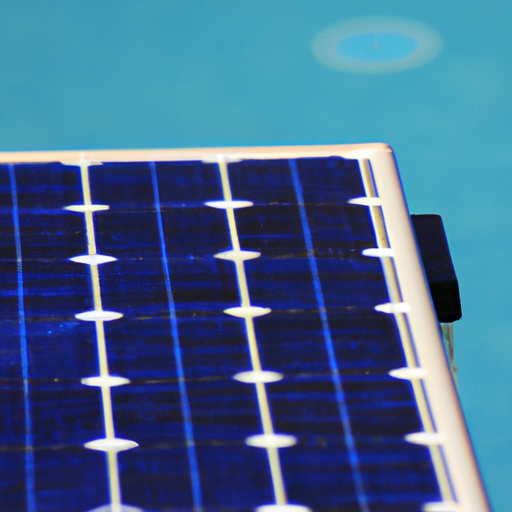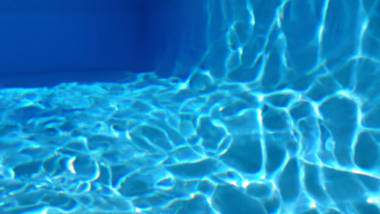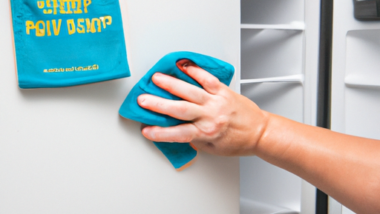Maintaining a swimming pool can be a delightful experience, but have you ever wondered if there are any specific energy-saving practices for swimming pool maintenance in the UK? Well, look no further as we explore some efficient techniques to help you reduce energy consumption and lower your pool’s environmental impact. From optimizing pump usage to implementing smart temperature control systems, we’ve got you covered with practical tips that will not only save you money but also contribute to a more sustainable approach to pool ownership. So, let’s dive into the world of energy-saving practices for swimming pool maintenance in the UK!
I. Pool Equipment
A. Pool Cover
A pool cover is an essential piece of pool equipment that can significantly contribute to energy savings. By covering your pool when it is not in use, you can reduce evaporation, heat loss, and the need for chemical usage. On top of that, a pool cover can keep debris out of the water, reducing the workload of your filtration system. With a pool cover, you can maintain water temperature and quality more efficiently, ultimately saving energy and money in the long run.
B. Energy-efficient Pump and Filter
Investing in an energy-efficient pump and filter system can have a notable impact on your pool’s energy consumption. Traditional pool pumps can consume a significant amount of electricity, but by switching to an energy-efficient model, you can reduce energy usage by up to 70%. These pumps are designed to operate at lower speeds, resulting in less energy consumption without compromising the pool’s circulation and filtration. Additionally, choosing an energy-efficient pool filter can further enhance energy savings by reducing the strain on the pump.
C. Variable Speed Pump
A variable speed pump offers even greater energy-saving potential compared to energy-efficient pumps. By allowing you to adjust the pump’s speed according to your pool’s needs, you can optimize energy usage. Lowering the pump speed during periods of lower pool usage significantly reduces energy consumption while still maintaining satisfactory water circulation. Variable speed pumps can save up to 90% on energy costs compared to traditional single-speed pumps, making them a worthwhile investment for any pool owner looking to save energy and reduce expenses.
D. Solar Heating System
Harnessing the power of the sun, a solar heating system can efficiently heat your pool water while minimizing energy consumption. Solar panels collect the sun’s energy to heat the pool water, reducing reliance on conventional heating methods and saving energy. In the UK, where abundant sunlight might not be guaranteed, solar heating systems can still provide effective heating, especially when combined with insulation techniques. Installing a solar heating system is a sustainable and cost-effective way to enjoy warm pool water while minimizing energy usage.
II. Water Management
A. Regular Monitoring
Regular monitoring of your pool’s water levels and quality is essential for energy-saving maintenance. By keeping a close eye on the water levels, you can avoid overfilling the pool, which can lead to unnecessary water and energy waste. Additionally, monitoring chemical levels ensures that you only add the necessary amount of chemicals, preventing excessive consumption. Implementing a routine check-up schedule and investing in water testing kits can help you maintain optimal water levels and quality, resulting in energy savings.
B. Proper Water Chemistry
Maintaining proper water chemistry is not only crucial for water safety but also for energy efficiency. Balancing the pH levels, alkalinity, and sanitizer levels in your pool water ensures efficient chlorine distribution and reduces the need for excessive chemical usage. When the water chemistry is well-maintained, your pool equipment can work more efficiently, resulting in energy savings. Regularly testing and adjusting the water chemistry using appropriate products and techniques will help you achieve a healthy and energy-efficient pool environment.
C. Pool Insulation
Insulating your pool can significantly reduce energy consumption by preventing heat loss. Adding insulation to the walls and bottom of your pool helps retain the warmth generated by your heating system. High-quality insulation materials, such as rigid foam panels, can effectively trap heat, allowing your pool to retain its temperature for longer durations. This means your heating system won’t need to work as hard or consume as much energy to maintain the desired pool water temperature. Pool insulation is an investment that pays off by reducing energy costs and increasing swimming comfort.
D. Rainwater Harvesting
Making use of rainwater is an eco-friendly way to reduce energy consumption associated with pool maintenance. By installing a rainwater harvesting system, you can collect and use rainwater to fill up your pool, reducing the need for tap water. Not only does this conserve valuable resources, but it also helps minimize energy consumption associated with water treatment and delivery. Rainwater is typically free from the chemicals found in tap water, making it a healthier option for your pool. Embracing rainwater harvesting supports sustainable pool maintenance practices while reducing your environmental footprint.
III. Lighting
A. LED Lighting
Switching to LED lighting for your pool can bring significant energy savings. LED lights are more energy-efficient compared to traditional incandescent or halogen bulbs, consuming up to 80% less electricity. LED lights also have a longer lifespan, reducing the frequency of bulb replacements and their associated energy usage. These lights provide bright, vibrant illumination while using minimal energy, allowing you to create an inviting and energy-efficient pool environment.
B. Timers and Sensors
Using timers and sensors for your pool lighting can further enhance energy efficiency. By automatically controlling the lighting schedule based on your preferences and pool usage patterns, you can avoid unnecessary energy consumption. Timers can turn the lights on and off at specific times, ensuring they are only active when needed. Additionally, motion sensors can detect activity and automatically activate the lights, further reducing energy waste. These smart lighting control systems provide convenience, safety, and energy efficiency, allowing you to enjoy your pool while minimizing energy usage.
IV. Automation and Control Systems
A. Smart Control Systems
Investing in smart control systems for your pool can greatly improve energy efficiency and convenience. These systems allow you to automate and control various aspects of your pool maintenance, such as temperature, filtration, and lighting, from any location. With the ability to program and adjust settings remotely, you can optimize energy usage and maintain optimal conditions for your pool. Smart control systems also provide real-time data and alerts, enabling proactive maintenance and preventing energy wastage.
B. Remote Monitoring and Control
Remote monitoring and control systems take energy efficiency and convenience to the next level. By using a smartphone app or web-based platform, you can monitor and control your pool equipment from anywhere. This means you can adjust settings, receive alerts, and even troubleshoot issues remotely, saving you time, effort, and energy. Remote monitoring and control systems ensure that your pool operates at its best efficiency, reducing energy waste and allowing you to enjoy your swimming pool without the stress of manual management.
V. Energy Audits
A. Professional Energy Audits
Hiring a professional for an energy audit can provide valuable insights into your pool’s energy consumption and opportunities for improvement. Energy auditors will assess your pool equipment, insulation, lighting, and overall energy usage to identify areas of inefficiency. They may recommend specific upgrades, maintenance practices, or behavioral changes that can optimize energy savings. Professional energy audits offer comprehensive analysis and expert advice, helping you make informed decisions for energy-efficient pool maintenance.
B. DIY Energy Audits
If you prefer a more hands-on approach, you can conduct a DIY energy audit to identify energy-saving opportunities. Start by assessing your pool equipment, checking for any signs of wear, leaks, or inefficiency. Examine insulation and lighting, ensuring they are in good condition and using energy-efficient components. Additionally, analyze your pool maintenance practices and look for any areas where energy waste might occur. DIY energy audits help you gain a better understanding of your pool’s energy usage and empower you to make necessary adjustments for improved energy efficiency.
VI. Collaborative Efforts
A. Pool Owners Associations
Joining a pool owners association or community can provide access to valuable resources, knowledge sharing, and collaborative efforts towards energy-efficient pool maintenance. These associations often organize educational events, workshops, and online forums where members can exchange ideas, best practices, and success stories. By participating in community initiatives and networking with fellow pool owners, you can gather valuable insights and support for sustainable pool maintenance practices.
B. Government Incentives
In some regions, governments provide incentives for energy-saving practices, including pool maintenance. Stay updated with local energy conservation programs, grants, or tax incentives that promote energy-efficient pool equipment, insulation, and lighting. These incentives can help offset the initial costs of energy-saving upgrades, making them more accessible and cost-effective. By taking advantage of government incentives, you not only improve your pool’s energy efficiency but also contribute to broader environmental sustainability goals.
In conclusion, there are several specific energy-saving practices for swimming pool maintenance in the UK. By implementing these practices, such as using pool covers, investing in energy-efficient equipment, monitoring water chemistry, utilizing rainwater harvesting, and embracing automation and control systems, pool owners can significantly reduce energy consumption and expenses. Additionally, collaborating with pool owners associations and taking advantage of government incentives can further support sustainable pool maintenance efforts. With these energy-saving practices, you can enjoy a well-maintained pool while minimizing your environmental impact and maximizing energy efficiency.


